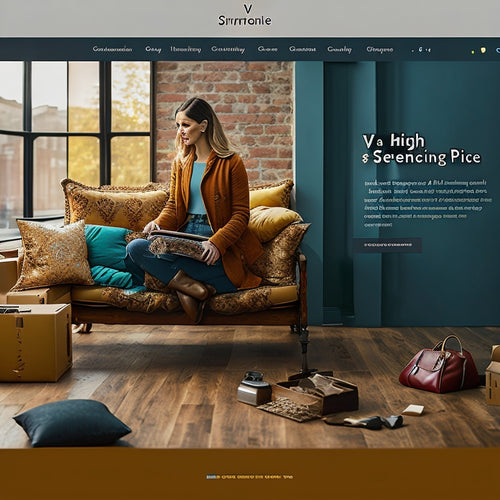
Unlock Business Success With Merchant of Record
Share
By outsourcing regulatory compliance, payment processing, and tax management to a merchant of record, businesses can greatly simplify global commerce operations, reduce complexities, and tap into new growth opportunities. This strategic move enables companies to focus on core competencies, expand into new markets, and mitigate potential threats. By assuming the responsibilities of a merchant of record, businesses can streamline payments, ensuring a scalable infrastructure for international growth. By leveraging this model, entrepreneurs can concentrate on developing products and expanding their customer base, ultimately unleashing business success. Discover how this approach can further optimize your business operations.
Key Takeaways
• By outsourcing payment processes, businesses can simplify global commerce and reduce complexities in cross-border transactions.
• The merchant of record model empowers entrepreneurs to access new markets, focus on core competencies, and scale their business.
• Leveraging a merchant of record provides a safeguard against financial, legal, and reputational liabilities, ensuring risk-free business operations.
• Outsourcing tax management and regulatory compliance enables companies to expand into new markets and reduce administrative burdens.
• By assuming the responsibilities of a merchant of record, businesses can streamline payments, reduce complexities, and focus on revenue growth.
Simplifying Global Commerce
By assuming the responsibilities of a merchant of record, businesses can simplify global commerce by outsourcing complex payment processes, regulatory compliance, and tax management. This strategic move enables companies to expand into new markets, streamlining payments and reducing the complexities associated with cross-border transactions.
Empowering Entrepreneurs Forward
Entrepreneurs seeking to scale their businesses globally can leverage the merchant of record model to access administrative burdens, freeing up resources to drive innovation, revenue growth, and customer acquisition. By outsourcing payment processing, tax management, and regulatory compliance, entrepreneurs can focus on their core competencies, empowering them to navigate complex international markets with confidence.
The merchant of record model enables entrepreneurial empowerment, facilitating international growth by providing a scalable and adaptable infrastructure. This, in turn, allows entrepreneurs to concentrate on developing their products, expanding their customer base, and exploring new revenue streams.
With the merchant of record model, entrepreneurs can accelerate their global expansion, accessing new opportunities and driving business success.
Risk-Free Business Operations
Operating a business in today's global market necessitates a thorough understanding of the risks involved, and the merchant of record model provides a safeguard against financial, legal, and reputational liabilities. By leveraging a merchant of record, businesses can guarantee risk-free operations, focusing on core functions while mitigating potential threats.
Here are four key benefits of a risk-free business operation:
-
Compliance management: Ensuring adherence to regulations and laws, avoiding legal complexities.
-
Fraud prevention: Shielding against fraudulent activities, protecting revenue and reputation.
-
Revenue optimization: Maximizing earnings through efficient payment processing and currency conversions.
- Customer satisfaction: Providing seamless checkout experiences, enhancing trust and loyalty.
Frequently Asked Questions
What Are the Typical Fees Associated With a Merchant of Record?
Typical fees associated with a Merchant of Record include payment processing fees (1-3% per transaction) and revenue sharing models (5-15% of gross revenue), which vary depending on the provider, transaction volume, and industry.
Can a Merchant of Record Be Used for Physical Product Sales?
Ironically, the Merchant of Record's digital roots don't preclude it from physical product sales. By outsourcing logistical challenges and inventory management, businesses can leverage the Merchant of Record's expertise, ensuring seamless transactions and compliance.
How Does a Merchant of Record Handle Refunds and Returns?
A Merchant of Record efficiently handles refunds and returns by meeting customer expectations through timely processing, adhering to refund timelines, and ensuring seamless communication, thereby maintaining a positive customer experience and reducing potential disputes.
Is a Merchant of Record Necessary for Small-Scale Digital Sales?
For small-scale digital sales, a Merchant of Record is not strictly necessary, but it can greatly simplify digital compliance and mitigate sales complexity, ultimately freeing up resources for core business functions and strategic growth initiatives.
Can Multiple Businesses Share a Single Merchant of Record?
Multiple businesses can share a single merchant of record, but this complex partnership necessitates careful consideration of shared liability, as joint responsibility for compliance, risk, and financial obligations can lead to vulnerabilities in the payment ecosystem.
Related Posts
-

5 Expert Fixes for Online Store Technical Headaches
You know the stakes: every moment of downtime or sluggish loading speeds means lost sales, compromised customer trust...
-

Efficiently Automate Your Shopify Store for Success
The automation of Shopify stores has become increasingly popular due to its potential benefits and the availability ...
-

Maximizing Business Growth With a Shopify Agency
This article explores the potential for maximizing business growth through the utilization of a Shopify Agency. A Sh...


